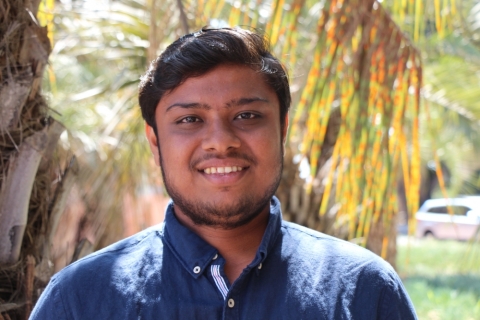
Date:
Location:
Speaker:
Title: Microscale control of colloidal migration via solute gradients
Abstract
Colloidal dispersions play a central role in various technological, industrial, and biological systems — including consumer products, drug delivery, and enhanced oil recovery. In such systems, the transport of suspended entities to their intended destinations is crucial for achieving optimal performance, and yet few methods exist to control this transport. Diffusiophoresis (DP), wherein suspended entities (e.g., nanoparticles, polymers, bubbles, and drops) migrate under solute gradients/fluxes, has garnered significant attention for its ability to enable directed colloidal migration. However, most DP studies to date have primarily focused on electrolyte gradients at ambient conditions. Moreover, very few experimental techniques are available to make reliable DP measurements, limiting our understanding of DP. Here, we present a novel microfluidic approach that enables quantitative DP measurements under steady-state gradients across a wide range of physicochemical environments. Using the approach, we validate classical DP theory's predictions of DP mobilities under binary electrolyte gradients at elevated temperatures. Furthermore, we develop a simple theory that predicts DP migration under gradients of zwitterions, which are neutral molecules, like non-electrolytes, yet carry charges like electrolytes. Employing our microfluidic technique, we demonstrate DP under zwitterionic amino acid gradients and validate our theory. Furthermore, DP has been proven to facilitate particle delivery into dead-end pores where convective transport is not feasible. Here, we present two innovative strategies that enhance the colloidal transport into dead-end pores via DP: (i) We enable prolonged DP delivery of particles into dead-end channels by extending the gradient timescales. This is achieved by leveraging soluto-inertial interactions between the solute and the hydrogel walls of the dead-end channels to slow down solute diffusion. (ii) We showcase that density matching the particles increases their DP migration length into the dead-end channels. Lastly, we shift our focus from the DP of isotropic particles to anisotropic Janus particles (JPs). Our findings reveal JPs align with external solute gradients as they migrate via DP. Furthermore, we demonstrate the direction and orientation of JP migration can be controlled by manipulating JP surface properties and solute employed. Overall, this thesis introduces a combination of new experimental tools, theoretical developments, and qualitatively new mechanisms and strategies, which not only validate long-held DP theories but also broaden the toolkit and open new avenues for understanding and manipulating colloidal migration via DP in various colloidal systems.



